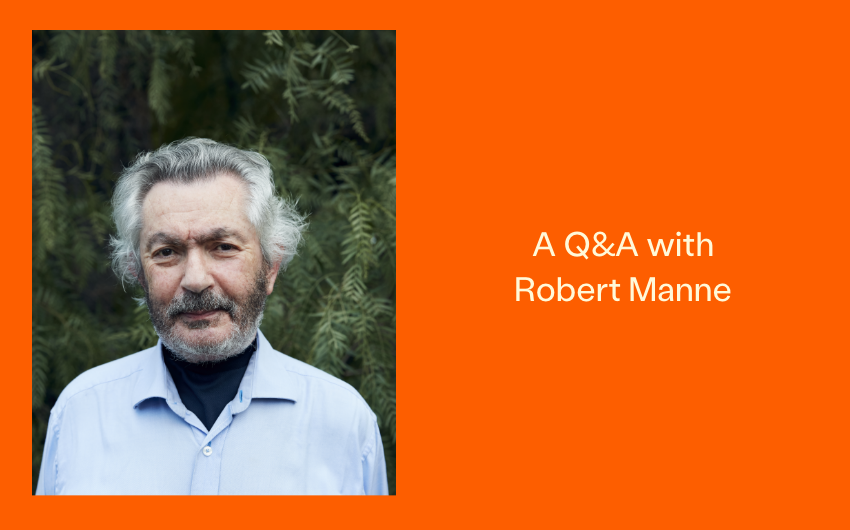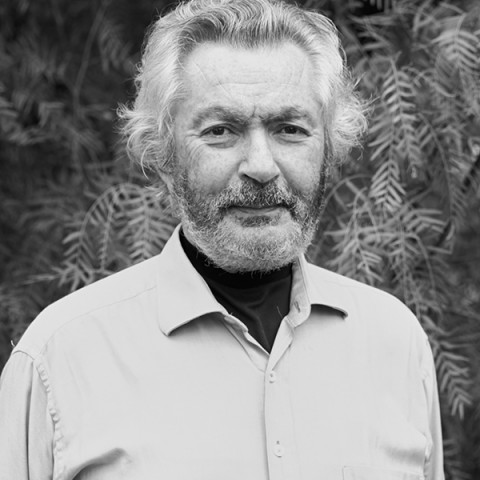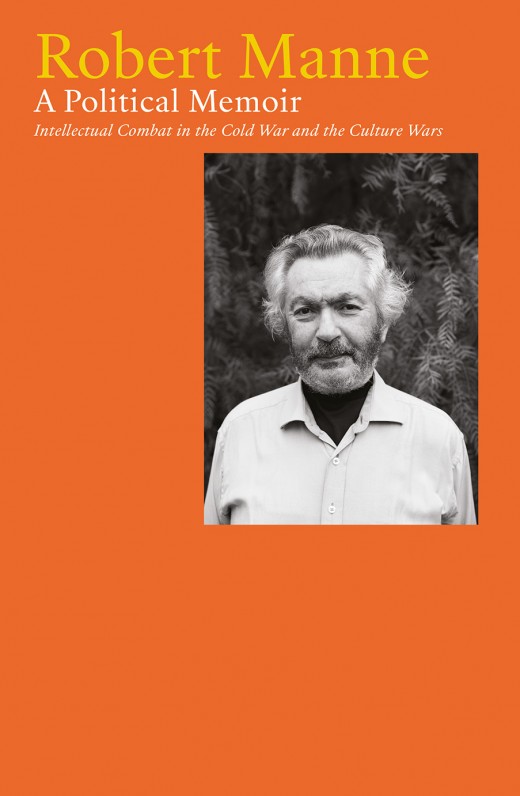News

News > Interview
A Q&A with Robert Manne
In the latest Black Inc. Q&A, we chat to Robert Manne, Australia’s leading public intellectual, about his forthcoming memoir, the authors and thinkers who have inspired and influenced his work, and the culture wars.
Though you yourself need no introduction, could you tell us a bit about your forthcoming memoir, especially for those who might not be familiar with your oeuvre? What — in the broadest of terms — is it about, and what compelled you to write it?
I have been writing for the general public (rather than only for academic colleagues) ever since I returned to Australia in 1974 after completing postgraduate studies at Oxford. I have engaged in many often fiercely contested political and cultural controversies over the subsequent half-century, in books, essays, journalism and as an editor (including as editor of Quadrant for eight years). In late 2016 my larynx was removed because of throat cancer. I decided soon after to withdraw from current controversies to write a political memoir. I hoped to document aspects of the struggles between politically engaged Australian public intellectuals and politicians during both the Cold War and then the Culture Wars. My ambition is to contribute to an understanding of postwar Australian politico-intellectual history.
Am I correct in saying that this is your first true memoir? How did the process of writing this book differ from that of your others? Did you find it challenging to turn your gaze inward for this purpose, or did it come more naturally?
There are several autobiographical passages in my earlier political writings, and one long autobiographical essay that was commissioned by the Good Weekend very many years ago. Because I am aware of the ways in which memory plays tricks on all of us, by removing details of one’s life and thought that are embarrassing, I have relied whenever possible on the written record. The writing flowed naturally once I had refreshed my memory. I strove neither to hide the hostility my arguments frequently occasioned, nor to disguise those occasions where I still feel some pride. Two chapters required fresh research, one on the fate of my grandparents, all of whom died during the Holocaust, and one concerning my father, a refugee from Nazism, who wrote for several years in the literary pages of Australian newspapers while working as a manual labourer.
As someone who does a great deal of writing and — undoubtedly — thinking, you must have been influenced throughout your life by many other writers and thinkers. Who are some of the most significant influences on your own work? Have these changed over the course of your career?
I can name the chief influences on my political thought concerning the totalitarian age in, roughly, chronological order—George Orwell’s four volumes of Collected Essays, Hannah Arendt’s The Origins of Totalitarianism, and Aleksandr Solzhenitsyn’s three volumes of The Gulag Archipelago. The political science book concerning our own system of government that influenced me most deeply, and that I used for teaching, was Walter Bagehot’s The English Constitution. The works of history I most admire include Alexis de Tocqueville’s The Ancien Regime and the French Revolution, V O Klyuchevskii’s five volume history of Russia, AJP Taylor’s The Struggle for Mastery in Europe and Eric Hobsbawm’s Age of Extremes. This year I was enormously impressed by a history of the failure of the so-called “two-state solution” between Israel and the Palestinians, Shlomo Ben-Ami’s Prophets without Honour. When I was younger, I was a devoted reader of novels and plays. The three novelists I learnt most from were Jane Austen, George Eliot and Fyodor Dostoyevsky, and the playwright, Anton Chekhov. I read each of Iris Murdoch’s novels as soon as they were published.
You’ve written extensively over the years about the Left, the Right and the culture wars. It often seems (to me anyway) that the Left–Right divide is getting wider, more hostile — is this the case, in your opinion, or has the divide always been this great? Where do you see it heading?
The depth of the Left–Right divide was probably greater at least in Australia during the Cold War than it is at present in the struggles of the Culture Wars. Happily, we have not yet experienced anything like the bitter struggle between the two nations in the United States in the Age of Trump. The greatest difference between then and now is the role played by social media with its capacity to spread misinformation and disinformation and to negate the possibility of settling intellectual disagreements through arguments conducted within a common public square, something to which my political life has been devoted.
What’s one book (besides your own) that you think everyone should read?
Primo Levi’s If This Is a Man.
Share this post
About the author
Robert Manne is emeritus professor of politics at La Trobe University. His recent books include On Borrowed Time, Making Trouble: Essays Against the New Complacency, and The Words that Made Australia (as co-editor). He has written three Quarterly Essays and is a regular contributor to the Monthly and the Guardian.
More about Robert Manne




